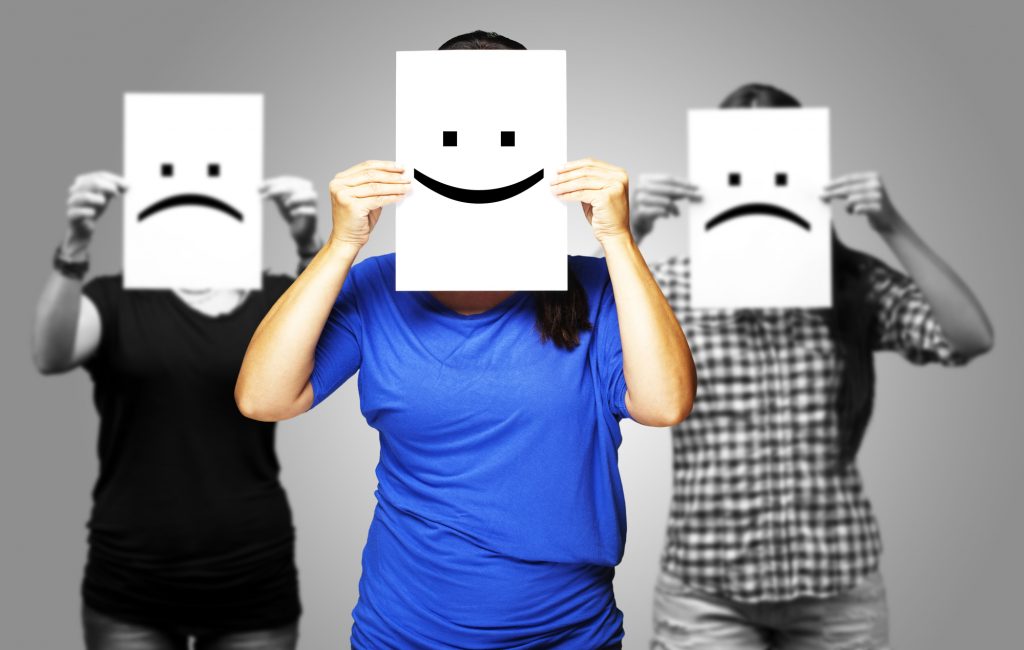
If you are new to my blog and information, you may not know that I suffered with depression for the majority of my life! I was a “wounded child” on the inside, but managed to function very well outwardly. Until I discovered how to heal and release the emotional wounds, I felt captive to the grips of depression, never really knowing when it would hit.
May is Mental Health Month and Essential #4 of the 7 Essentials System – Heal Your Emotional Wounds – is a cornerstone for creating vibrant health. Understandably, there is a connection with a cancer journey and mental health. If you have struggled with depression, take a look at a few tips that I learned over the years to help release the grip of depression.
The Depression-Cancer Connection: It’s a Real Downer
A new study published this year in the British Medical Journal confirms the link between depression and cancer. In a nutshell, they found that those who are in “psychological distress” had a 32 % greater chance of later dying from cancer. They connected the condition with higher inflammation, changes in immune pathways and DNA mutations.

When you experience depression, it is tempting to reach for pharmaceuticals to ease the pain. But did you know that, according to the United States Centers for Disease Control, between 1988 and 2008 anti-depressant use for all Americans increased by close to 400 percent? Women use anti-depressants twice as much as men do, and suffer more of the toxic side effects as well.
In some cases of severe depression, taking a pharmaceutical temporarily may be the best choice in order to lift yourself out of the fog long enough to consider long-term healing.
But as it turns out, there is A LOT you can do to release depression naturally!
4 Ways to Turn That Frown Upside Down
If you are feeling down, for the next month, I encourage you to do a “study” of your thought patterns. The

objective will be to learn about yourself, and hopefully feel better in the process!
At the beginning of each week, write down how you are feeling and rate it from 1 to 10 (10 being the highest level of depression). Then choose one of the practices from the list below and try it out every day for a week. At the end of the week, write down your observations and rate yourself again. You will be surprised to see how your emotions have shifted by applying simple principles described in this blog.
Finally, at the end of a month, assess how you feel overall as well as which of the four modalities was most effective for you. If none of them were effective, why do you think that was? Do you have another idea for a healthy activity that may help? If so, give it a try consistently for one week, then measure the results.
#1 Get more quality sleep. Getting seven to eight hours of quality sleep is one of the BEST thing you can do to fight depression since there is a direct link between lack of sleep, depression and cancer. Some tricks to get a better night sleep include “unplugging” from all electronics at least an hour before you go to bed, taking a soothing nighttime bath or using a PEMF mat regularly.
#2 Try meditation and guided imagery. A calm mind means a calm body and more happy hormones for you! Start with just five minutes of deep breathing a day and work yourself up to fifteen minutes or more. Experiment with guided imagery programs that can help you get into the “feeling state” of a more positive, balanced you.
Emotional Freedom Technique, or “tapping,” can also be an effective form of guided imagery to get you on the right track. EFT, which is like acupuncture for the emotions, uses affirmative phrases and gentle tapping instead of mental visuals. Initially, it might be helpful to work with a therapist to guide you through the process of tapping.
#3 Move your body. Light stretching or practicing the slow, fluid movements of Tai Chi can not only balance your mind, but may even unblock energetic pathways that could be affecting brain health. More rigorous exercise lowers cortisol while releasing healing hormones that can relax and uplift. Light to moderate exercise can also help with depression related to chronic pain.
#4 Practice some art! Doing art has the added benefit of being a healthy medium for expressing emotional pain and memories associated with trauma. Would you like to write, paint or  make music but have never taken the plunge? Send inner critic on a holiday for a half hour and dive in to your creativity! Don’t know what to do? Try coloring!
make music but have never taken the plunge? Send inner critic on a holiday for a half hour and dive in to your creativity! Don’t know what to do? Try coloring!
Of course, these four activities are just the “tip of the iceberg” when it comes to being pro-active about living a healthy, vibrant, inspired life. Nutritional changes, cleaning out toxins and healing deep emotional wounds through formal therapy should also be incorporated. The main thing to remember is to not give up. For years, I did the work of understanding my root causes for the depression. I still check in daily and apply all of the suggestions in this blog. If I can do it, you can too!
Studies have shown that it can takes up to 9 weeks for a new habit to form. Once you have discovered a healthy habit that can help you stay balanced, centered and in positive spirits in general, stick to it for at least three months. Then see what happens!

Having suffered too with depression most of my life due to constantly reliving childhood memories, I am extremely grateful for the advice offered by Dr V. My cancer diagnosis was a massive wake-up call and my body’s way of saying that my mind needed to make radical changes if I am to survive. As well as the advice offered here, I also believe that forgiveness releases an incredible burden – I was only able to do this when I learnt that forgiveness doesn’t mean what someone did to you was ok but that by forgiving the person who caused you hurt it can put a stop to one’s painful memories. I live in the UK and will be searching for an EFT practitioner which you mention here and therapy that has been recommended to me by a friend. God bless you Dr V, I am an avid fan and follower.